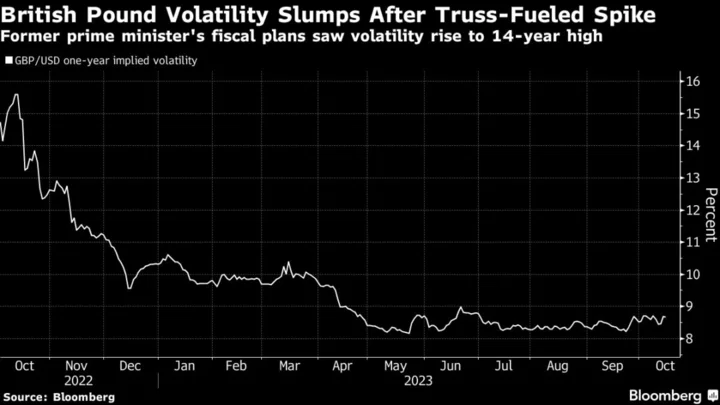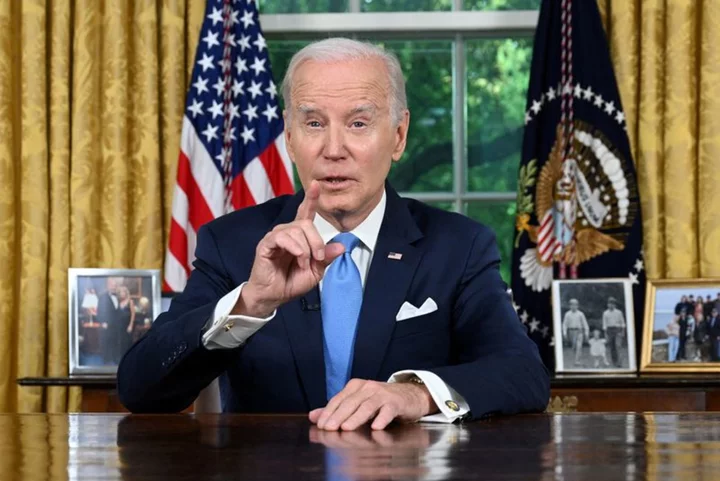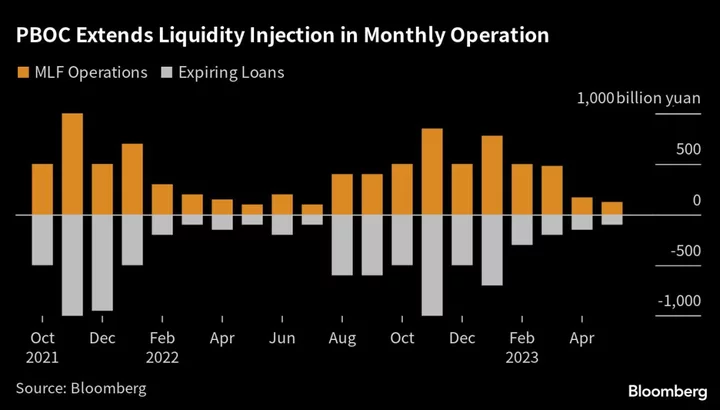British companies are dialing back on currency hedging as their earnings become less vulnerable to dramatic swings in the pound.
The proportion of UK firms hedging their foreign-exchange exposure has fallen to 70%, down from 89% last year, currency management company MillTechFX said in a report Tuesday. Those who typically hedge have scaled back, while less firms are considering starting, according to its survey of 250 chief financial officers and treasurers.
It shows the lack of drama around the pound this year, with the currency mostly sticking to a range of $1.20-$1.30. That’s a turnaround from last year’s plunge to a record low $1.0350, and the chaos seen in the wake of 2016’s Brexit vote, which gave it the kind of volatility more commonly seen in emerging markets.
“The reduction in volatility on an annual basis between surveys probably accounts for why hedging activity has fallen,” said Eric Huttman, chief executive officer at MillTechFX, a fintech affiliate of $18-billion currency manager Millennium Global Investments Ltd. “But it’s definitely not gone away.”
For companies still buying protection against swings in the pound, the proportion of their currency exposure that is hedged has fallen to 40-49%, down from 50-59% in 2022. MillTechFX surveyed firms with a market capitalization of between £50 million and £1 billion.
Of those that do not hedge, 67% are considering doing so, down from 89% last year, the survey found. That fits market bets on lower implied volatility in the next year. By contrast the pound was the most volatile Group-of-10 currency in 2016, 2017 and 2019, as the UK’s messy divorce from the European Union fanned uncertainty.
It’s also part of a wider trend of currency volatility sinking this year. In 2022, Russia’s invasion of Ukraine combined with aggressive global central bank interest-rate hikes to create a choppy market environment. In the UK, former premier Liz Truss’ unvetted fiscal plans saw the pound collapse just over a year ago, before a rapid rebound.
Still, UK companies are continuing to see a hit to profitability from current levels of sterling volatility. And the Israel-Hamas conflict is the latest reminder that trading can suddenly become choppier.
Nearly 70% of those surveyed cited an impact from swings on their bottom line. Three-quarters of respondents are looking at new technology and platforms to save money and automate their foreign-exchange operations.
Read more: Currency Hedges Are Burning Traders’ Wallets as Volatility Fades
“We’re in an environment where interest rates and corporate financing costs are higher,” said Huttman. “Companies are looking to reduce their FX costs regardless of whether they are hedging more or less.”









